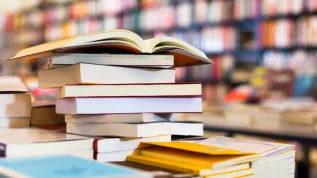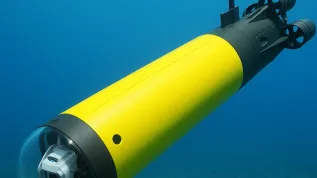
According to estimates, in Poland there are 3 to 6 thousand Ukrainian scientists who came to our country since the start of Russia's invasion of Ukraine, President of the Polish Academy of Sciences Professor Jerzy Duszyński told PAP. Our urgent task is now to store the intellectual potential of Ukrainian science, he added.
According to Professor Jerzy Duszyński, there is no accurate data on the number of Ukrainian scientists who came to Poland after Russia's attack.
"According to the data of the Ukrainian Ministry of Education, 35,000 scientists worked in Ukraine before the war. According to our estimates, 3 to 6 thousand of them are now in Poland', said Duszyński. He added that this number included scientists employed at universities and the institutes of the National Academy of Sciences of Ukraine.
According to information provided by the President of the Polish Academy of Sciences, only a small part of them found employment in Poland. The academy has prepared a total of 220 3-month grants for Ukrainian scientists. Their recipients work in the institutes of the Polish Academy of Sciences. Professor Jerzy Duszyński said that most of them were women. The amount of several million zlotys for this purpose comes from the Polish Academy of Sciences, the American National Academy of Sciences (NAS), the German National Academy of Sciences Leopoldina, Academia Sinica, the National Cheng Kung University in Taiwan and from Elsevier.The institutes of the Polish Academy of Sciences applied for grants on behalf of Ukrainian scientists, Duszyński explained.
The interest was significantly greater than the number of available positions. 'Initially, we were stormed', he said. He added that the academy announced the first competition on March 1, only a few days after the beginning of the war.
Professor Jerzy Duszyński emphasized that Ukrainian scientists who worked in the institutes of the Polish Academy of Sciences as part of 3-month grants retain affiliation to their home scientific units in Ukraine.
'In a way, they work for the benefit of their home units', he added.
When asked about the benefit of host of a scientist from Ukraine for Polish institutes, the President of the Polish Academy of Sciences expressed the hope that Polish researchers from these institutes would be co -authors of scientific papers. He said that in this matter a lot depended on decisions of directors of institutes that had many powers and autonomy.
'Our further intention is that research groups grow around our best Ukrainian grantees. We want these persons to be able to manage the work of their doctoral students, be it in Poland or in Ukraine', emphasised Professor Jerzy Duszyński.
The Polish National Science Centre also prepared dozens of grants for scientists.
'Now we are changing our approach, because we understand that three months is a temporary solution +taking them off the street+. We are going to extend the grant period for the most outstanding scientists', he added. The Polish Academy of Sciences has already secured funds for this purpose, it has financial commitments from the American National Academy of Sciences.
Another measure mentioned by Duszyński is the organization of fellowships in several European scientific centres, including Max Planck Institutes in Germany, Dutch and Austrian science academies.
'We want Ukrainian grant holders who are in the institutes of the Polish Academy of Sciences to be able to complete 3-month scientific fellowships at leading scientific institutions in order to establish scientific contacts there', he said.
Most likely in June, the Polish Academy of Sciences will to announce another grant competition for the best Ukrainian scientists - this time sponsored by the Taiwanese Academia Sinica.
'These grants will be awarded them for a longer period to about 10 people. We already have several researchers on our radar, including outstanding mathematicians and heads of some institutes of the National Academy of Sciences of Ukraine', revealed Professor Jerzy Duszyński. The conditions are expected to be even better than in the case of the National Science Centre grants, the head of the Polish Academy of Sciences assured.
About fifty people will benefit from the National Science Centre programme. The centre will finance their one year stay in Polish academic and scientific units, including funds for remuneration and research. The programme budget is PLN 6 million.
'The thing that concern the administrators of Ukrainian science is that there will be a generation gap in Ukrainian science. Ukraine will lose many talented researchers who will continue their careers abroad. I understand this fear', he added.
He emphasized that he was in constant contact with the head of the National Academy of Sciences of Ukraine, Professor Anatoly Zahorodny, and support organized by the Polish Academy of Sciences was prepared in close cooperation with the Ukrainian side.
'Our task at the moment is to store the intellectual potential of Ukrainian science', said Professor Jerzy Duszyński.
'We also want to send a message to the scientific community in Ukraine that they have our support and we are doing everything in our power to help them', he concluded.
PAP - Science in Poland, Szymon Zdziebłowski
szz/ mir/ kap/
tr. RL













